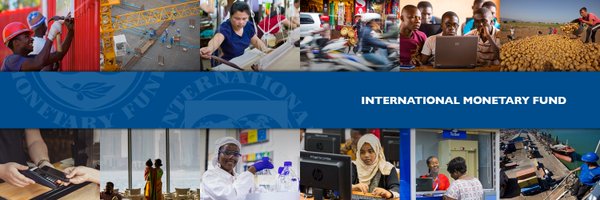 (AGENPARL) - Roma, 22 Aprile 2022
(AGENPARL) - Roma, 22 Aprile 2022(AGENPARL) – ven 22 aprile 2022 FRIDAY APRIL 22, 2022
Welcome to today’s briefing on the 2022 Spring Meetings
In this special edition of the Weekend Read on the Spring Meetings, we focus on new commitments to the Resilience and Sustainability Trust and G20 Common Framework for Debt Treatment at a meeting of the International Monetary and Financial Committee, a high-level debate on the global economy, Ukraine’s financing and reconstruction needs, green jobs, and a wrap of the week’s highlights.
—————————————————————
(PHOTO: IMF PHOTOS)
Twelve countries have pledged almost $40 billion to support the Resilience and Sustainability Trust (RST) to overcome climate change and other long-term structural challenges, the IMF’s Managing Director Kristalina Georgieva said on Thursday.
(PHOTO: IMF PHOTOS)
Nadia Calviño, Spain’s Minister of Economy and current chair of the IMF’s International Monetary and Financial Committee, said on Thursday there was agreement among members on all elements related to the important work of the institution.
“Unanimity was there on the substantive issues.”
(PHOTO: IMF PHOTOS)
According to Georgieva, “We live in a more shock-prone world” and need to be more agile and build more resilience. She further highlighted the challenge that emerging market and developing economies face, with growth projections that are 6 percent below their pre-pandemic trend in 2026—meaning that they face a delay of 2 or more years in their recoveries. The issue for leaders is to find policies that can deal with short-term challenges without jeopardizing longer term sustainable growth, she said.
Lagarde emphasized that there will be a “haircut to growth projections and rise in inflation numbers,” but added that the war will have ripple effects that go way beyond Europe.
Powell said that while the US economy is very strong, restoring price stability is essential, and the key focus will be bringing inflation back to the 2 percent target.
Mottley said that small countries such as Barbados don’t have the option of fiscal and monetary relaxation to support their economies—their only option is to increase debt. This limits the space to fight inflation. “This is a time when we need expenditure more than ever, and there is little concessionary funding available, little fiscal space available, and an urgent need to reform international financial institutions.”
TODAY’S HIGHLIGHTS
8:00 AM – 8:30 AM ET
SPEAKER: Rosanna Costa, Governor of the Central Bank of Chile
8:30 AM – 9:00 AM ET
SPEAKER: Stefan Ingves, Governor of Sveriges Riksbank and Chairman of the Executive Board
9:00 AM – 9:45 AM ET
SPEAKERS: Alfred Kammer, Director, European Department, IMF
10:30 AM – 11:30 AM ET
SPEAKERS: Gita Gopinath, First Deputy Managing Director, IMF; Andrew Bailey, Governor, Bank of England; Nor Shamsiah Yunus, Governor, Central Bank of Malaysia; Hélène Rey, Professor at London Business School
MODERATOR: Richard Quest, Anchor and Correspondent, CNN International
2:30 PM – 3:15 PM ET
SPEAKERS: Kristalina Georgieva, Managing Director, IMF; David Malpass, President, World Bank; Ngozi Okonjo-Iweala, Director-General, World Trade Organization (WTO); Mathias Cormann, Secretary-General, OECD
MODERATOR: Shawn Donnan, Writer, Bloomberg
(PHOTO: ISTOCK PHOTO)
Pressure on Ukraine’s budget will persist and the country requires more external assistance in the form of grants and concessional funding to keep the economy afloat, the IMF’s Kristalina Georgieva said on Thursday.
But Georgieva said the Ukrainian government’s management of the economy had been remarkable and helped to prevent problems often associated with war, such as hyperinflation and currency devaluation.
“You have acted decisively to preserve the availability of foreign exchange reserves and reduce exchange rate uncertainty. You have supported financial stability and protected priority budget payments. And you have ensured that people in Ukraine can still access the services and the cash they need.”
Ukrainian President Volodymyr Zelensky, who joined the discussion via video link from Kiev, said Russia’s invasion had inflicted terrible destruction and blockades of Black Sea ports had led to a collapse in agricultural exports with far-reaching consequences for the world economy.
“To stop the war now…is the only secure way to stop a food crisis.”
Georgieva estimated that the country would require around $5 billion in financing per month for the next 2 to 3 months simply to allow the government and economy to function.

